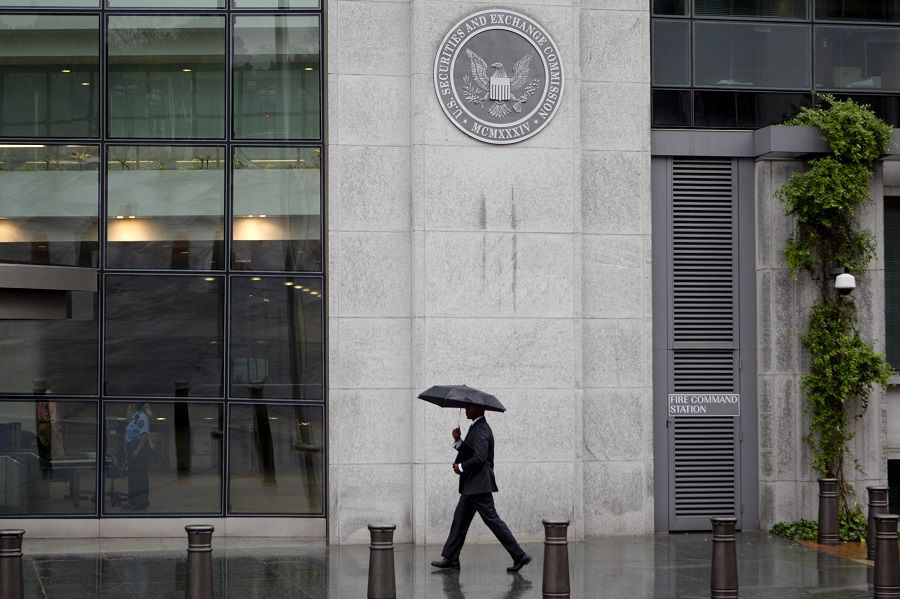The Securities and Exchange Commission’s investigation of Goldman Sachs funds and the agency’s settlement with BNY Mellon might represent the beginning of a wider enforcement campaign targeting ESG issues.
Late last week, reports broke that the regulator has been looking into whether two Goldman Sachs Asset Management mutual funds included investments that conflicted with the ESG factors in the funds’ marketing materials. That followed the SEC’s $1.5m settlement last month with BNY Mellon Investment Adviser Inc. over claims that some of the firm’s funds did not apply ESG quality reviews across all investments as it had asserted.
More enforcement could be coming, sources said — and the SEC has all but guaranteed that a crackdown has been in the works for over a year. Last year, its Division of Examinations published a risk alert for advisers and investment providers, warning that it had noticed a host of misleading claims about ESG across the industry, as well as a dearth of policies and documentation to ensure that products were operating as intended. That risk alert followed an announcement in March 2021 that the SEC had assembled a 22-member enforcement task force on ESG issues.
On whether the recent investigations are indicative of the SEC’s ESG priorities, “the short answer is ‘emphatically yes,’” said Howard Suskin, partner at Jenner & Block and co-chair of the law firm’s SEC enforcement and class-action practices, not commenting on the investigations of the specific companies.
The agency’s proposed rule amendments for marketing by advisers and investment providers, as well as for fund names and the proposal on disclosures for public issuers all point to the broad interest in ESG claims, Suskin said.
“The bottom line is the SEC, just knowing how popular ESG is among investors, is really now looking carefully at any potential misrepresentations by issuers, by financial institutions and by funds about how they’re talking about ESG, and making sure those are accurate,” he said. “I think it’s the entire process by which a firm constructs something that it characterizes as pro-ESG … all the way through the marketing of it. I don’t think anything is off-limits.”
The agency’s announcements of the new task force and risk alert “put folks on alert,” said Bryan McGannon, director of policy and programs at US SIF. To help investment providers stay in its good graces, the SEC cited positive approaches for managing marketing, statements and reporting mechanisms, McGannon said.
“It wouldn’t surprise me if we see more of these kind of enforcement actions,” he said. “US SIF clearly believes that firms should be able to stand by any marketing claims, and they should have the infrastructure in place to demonstrate and back up those claims. A lot of these cases are going to come down to that.”
In BNY’s case, the issue was more around process than an ESG problem, McGannon noted.
The SEC did not respond to a request for comment on the reported investigation into GSAM’s funds. However, the asset manager has confirmed in a statement that the regulator is examining “a historical time period” for its ESG Emerging Markets Equity Fund, International Equity ESG Fund and US Equity ESG separately managed account option. Those investments represented about $725m as of the end of April, according to Goldman Sachs.
On the GSAM funds investigation, it’s too early to draw conclusions, said Micah Hauptman, director of investor protection at the Consumer Federation of America and former counsel to SEC Commissioner Caroline Crenshaw.
“I don’t think one can offer any credible takeaways about enforcement priorities based on public reports about a potential investigation,” Hauptman said in an email. “The recent case against BNY Mellon does suggest an increased focus on ensuring firms’ ESG marketing is not misleading. However, because it’s just one case, I think it may be a bit premature to have more focused takeaways regarding the SEC’s enforcement priorities in this context.”
As the details of more investigations around ESG emerge, however, the investment management industry will be watching closely.
“There is a huge amount of interest in how this is going to play out and what the potential exposure is going to be,” Suskin said.








